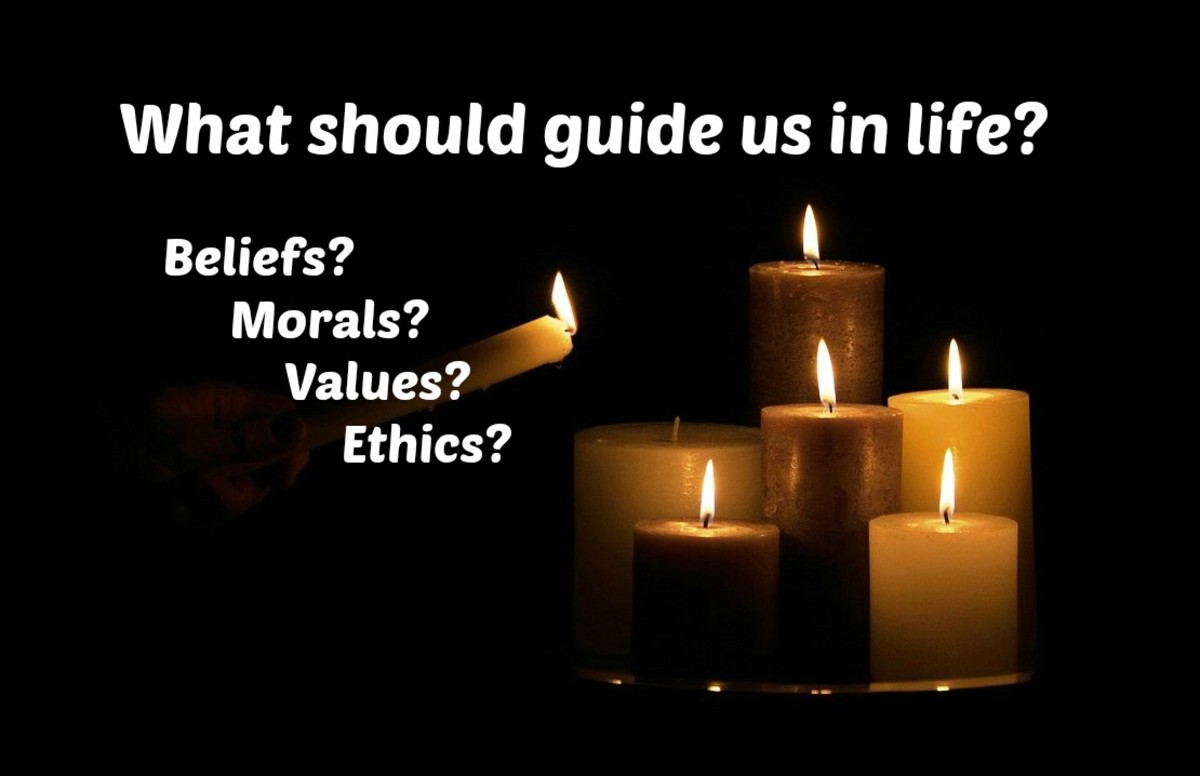The Politics Of Ethics
Can "ethics" be defined.... or judged?
A while back, someone claimed that I was “too ethical.” The comment, which had been overheard and relayed to me by a friend, did not surprise me, but it certianly set me to thinking. “Too ethical?” I mused. “Isn’t that the ultimate oxymoron?”
Since that time, I’ve pondered this question quite a bit: Should the adverb too ever be used to modify concepts like “ethical,” “moral,” “honest,” or “fair”? After all, we’ve repeatedly heard expressions like, “You can never be too rich or too thin,” statements that easily can be disproved. For example, you might be “too rich” if you won the lottery and found yourself totally unable to handle the responsibiiity of sudden wealth by squandering your fortune, as some instant millionaires indeed have done. As far as being “too thin” goes, you’d definitely be too thin if, in the throes of anorexia, you contnued to lose weight despite the fact that your health suffered in direct proportion to your weight loss.
In the black and white regions of ethics, however, wouldn’t the qualifier “too” in relation to the concepts of morality, truth, and fairness (justice?) make these concepts worthless? Some people do not see these as black/white issues; it’s much easier to relegate them to the gray netherlands where interpretation becomes a personal chocie. I’m fairly certain, however, that most peope would consider plagiarism, for example, unethical, After all, would you be happy about someone else taking credit for your efforts? (In the case of plagiarism, the practice of same also is illegal. That does not mean that all unethical acts are illegal. Many would argue that quite a few blatantly unethical acts are indeed considered legal in our rather skewed justice system that never has claimed to be “ethical.” That’s another issue.)
Consider this: wouldnt most people agree that cheating on one’s spouse is immoral? It certainly is dishonest, unless, of course, the “cheater” announces before the indiscretion something like, “By the way, I plan to cheat on you. Just wanted to give you a heads up.” What about the morality of cheating on a spouse who is so involved with his/her job that there is no time to nurture the marriage? Unless the universal definition of “morality” (if there is such a thing) contains codicils covering excuses, this, too, would be immoral. Of course, you might counter that your spouse making no time for you would, at the very least, qualify as unfair. No argument there.... but perhaps you could take the "higher road" by making it clear that something needs to change (perhaps with the help of a counselor), or you will take legal steps to dissolve an obviously unfulfilling relationship.
Here’s another challenging question: is honesty always the best policy? In other words, can a person ever be too honest? I’ve read many articles that encourage telling “little white lies” to avoid hurting someone’s feelings. For example, if your best friend asks, “Does this new dress make me look fat?”, do you tell her the truth and reply, “Well, you do kinda look like Moby Dick” ? Most of the articles and advice columns that I’ve read suggest that you strike a noble stance with a reply something like, “You always look great!” I myself prefer more of an “avoidance” response:”That’s a gorgeous dress” (if you really think that the dress in question is gorgeous, of course). In that case, you haven’t lied; you just haven’t answered the question, which should give your friend an idea of what your answer to her original question might be. In fact, from now on, you might want to put yourself in your friend’s (or spouse’s) position and say to yourself, “Do I really want to know if she/he thinks I look fat?” After all, what if the answer is a simple, “Yes”? Will you destroy the dress, or will you mope for the rest of the evening because he/she hurt your feelings? Usually, when you have a question like that, you pretty much know the answer anyway. (It’s taken me years to learn that lesson.)
What about the concept of fairness? In the case of Major League baseball ( or any other professional sport), I suspect that few would think it fair to allow a pitcher to play in a game merely because it’s his “turn”, e.g., he hadn’t pitched in the last five games, without regard to prior performance.What’s fair in that case is that the pitcher who has proven to be the most successful in previous games should be chosen. In other words, fair is defined as “what’s in the best interests of the team.” What about Little League baseball, then? Is it fair that Joey Jones claims the pitcher’s mound in every game while your kid warms the bench, just because Joey wins games? That’s where the concept takes a unique twist that seems to depend on whether fair is defined in relation to team performance or individual self esteem. We’ve all heard the “life isn’t fair” mantra. Would that response, then, be appropriate in the Little League example?
If fairness can be defined by the context to which it refers (and some would say it can not), does that hold true for ethics in general? In the case of honesty, at least, something is either true or false. (Did you ever take a true, false or maybe test?) Something can’t be mostly true and a trifle false. And what about the uniquely American concept of justice for all? You may disagree with some things about our legal system, but it is true that everyone (ok.... excluding some unethical politicians et al) is held accountable to the same set of rules. What about those who call it unjust not to afford certain convicted criminals a “second chance” because “everyone makes mistakes?” Assault, theft, embezzlement, coercion, etc. are choices, though, not mistakes; the mistake lies in getting caught.
The Outer Limits of Education, with its ever-changing, arbitrary definitions of fair and ethical, poses countless philosophical dilemmas, such as this: “ Is it ethical to pass a student on to the next grade if that student has refused to take responsibility for his/her academic performance throughout the semester/year by choosing not to do homework, study for tests, complete long-term assignments, and appear for after-school help when needed?” Many would probably agree that this is a no-brainer. Taking it a step further: “Is it ethical to allow that student to attend school for a few weeks in the summer (after he chose to do next to nothing for an entire year or semester) and automatically pass on to the next grade?” And if it’s ethical, is it fair, either to those students who chose not to meet course requirements or those who met the requirements and beyond? If your answer to one or both of those questions is, “Hey, kids will be kids,” then that’s my answer, too, with a slight disclaimer: Yes, kids will be kids.... and they’ll remain kids until they learn the lesson of taking responsibiity for the choices they make.
When I was growing up (an ongoing process for all of us), a very wise man often said with a twinkle in his eye and just a hint of Irish sarcasm, “Oh, I see. There’s a right way and a wrong way. And then there’s your way.” I finally understand what my father meant. There is, after all, no such thing as a three-way street.








